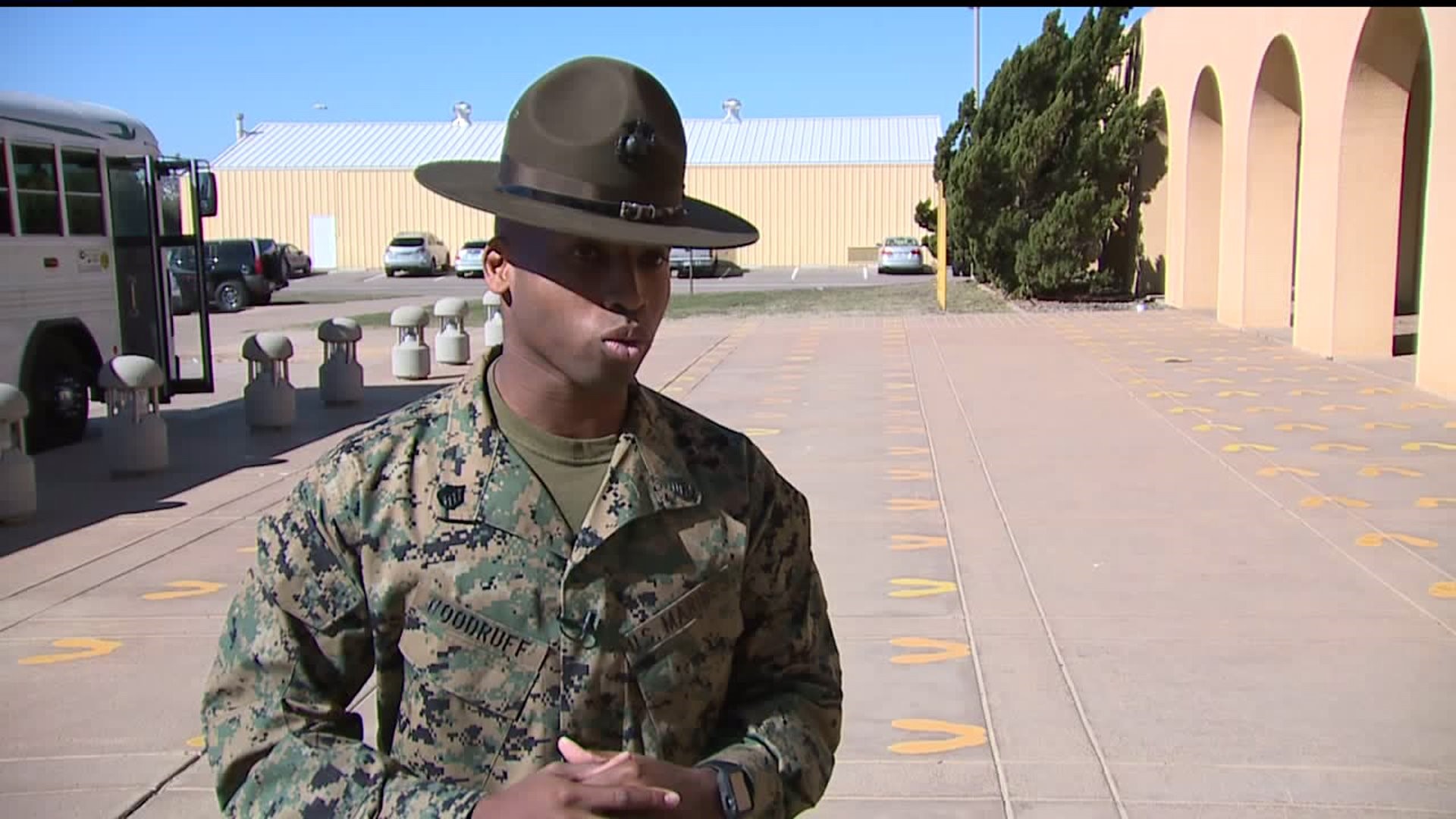Teachers on board the white bus hadn't gotten to finish their coffee that morning. The bus driver told them spills would make his floor sticky. The bus pulls up to a yellow building at the Marine Corps Recruit Depot, and a loud voice gets on.
"Get off my bus!"
That voice belongs to a Marine Corps drill instructor. He skips over any pleasantries or greetings, demanding the teachers get off the bus and stand in lines on what are known as the yellow footprints.
"When you stand in these footprints, and you walk through these doors, you are part of a legacy that ties folks to who we are as Marines," explained LtCol. Jesse Sjoberg.
The teachers represent a large Midwestern region, one busload is from the Twin Cities area of Minnesota. The other bus is mainly teachers from Iowa, including two teachers from Muscatine High School and one from Moline High School.
The teachers are here to experience boot camp like a Marine recruit. There are some noticeable differences. None of the teachers get the signature Marine haircut, of course. LtCol. Sjoberg says the teachers are getting only 20% of the intensity that a recruit would get from the drill instructors. A recruit would come off the bus in darkness, meant to add to the mystique and chaos of the arrival.
Their next stop is the contraband room, lined with red cubbies. This is where recruits leave everything that ties them to their civilian life. No cell phones. No wallets. Nothing from home. The whole time the drill instructor is calling out commands. There are only three answers.
"Yes, sir."
"No, sir."
"Ay, ay, sir."
"When I say look at me now, you have some teachers looking this way and this way," explained SSgt. Trevor Woodruff. "But for a recruit, that means get your eyes on me. No ifs, ands, or butts."
This special News 8 series will explore the making of a Marine. Recruiting and training Marines is a key part of the organization's work. 17,000 recruits graduate every year from one of three training locations - MCRD San Diego, Parris Island, South Carolina and Quantico, Virginia.
The teachers will get 3 days worth of an experience that usually takes 12 weeks. After meeting their drill instructors, the teachers will get an idea of how physically tough it is to become a Marine. They're brought to a football field to take the Combat Fitness Test. It consists of a half mile sprint, ammo can lifts and a maneuver under fire obstacle course.
"One of our bigger challenges [of recruiting] is actually getting people who are able to do it," said LtCol. Sjoberg. "From a physical standpoint and a mental and moral standpoint. We are looking for a smart committed and fit individual. And that's hard to find nowadays."
The challenges of recruitment are exactly why teachers are here. While recruiters work in the schools, the Marines identified that teachers could also help educate interested students in their options after high school, including the military.
"We make Marines, we win America's battles, and we return good citizens back to our country."

